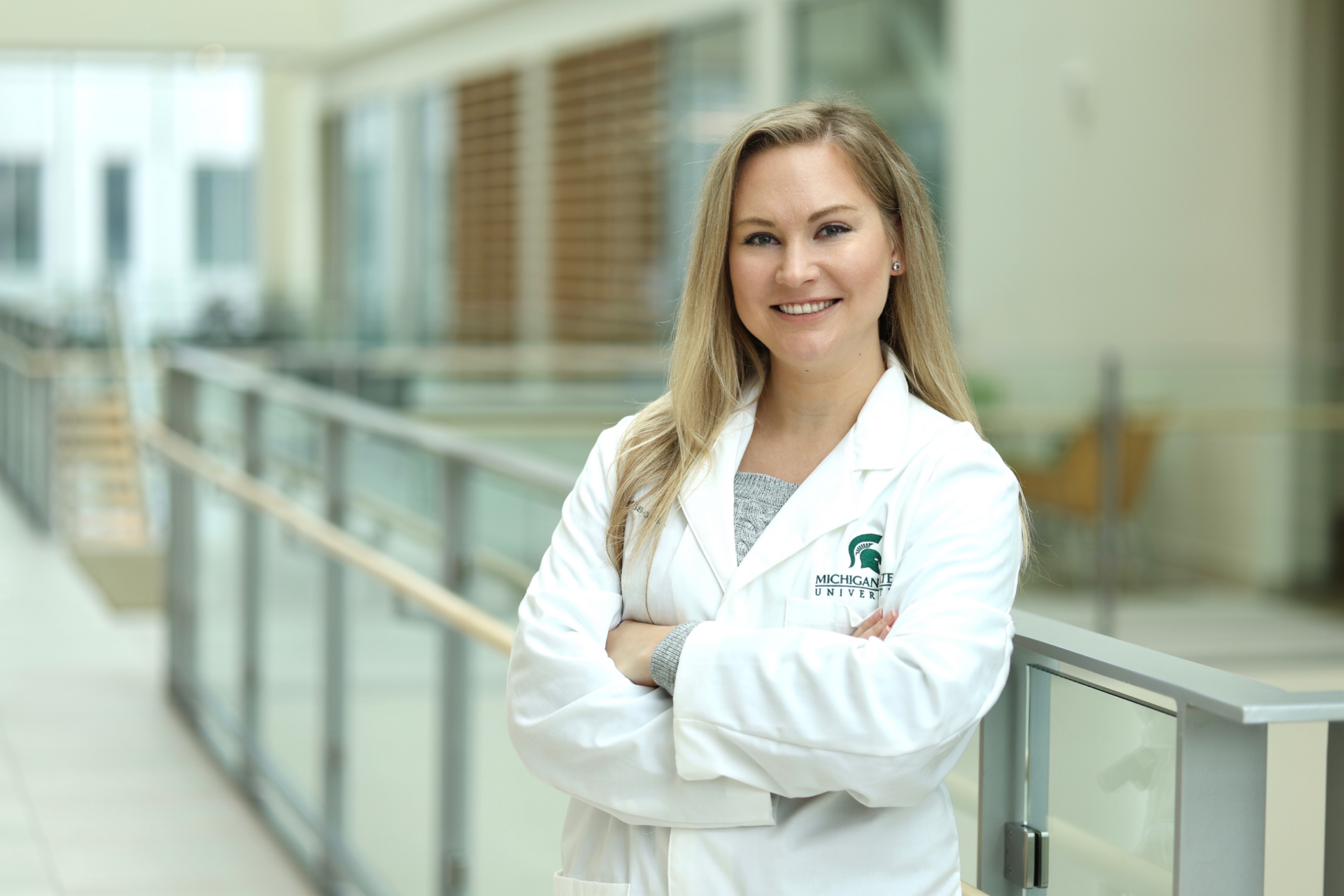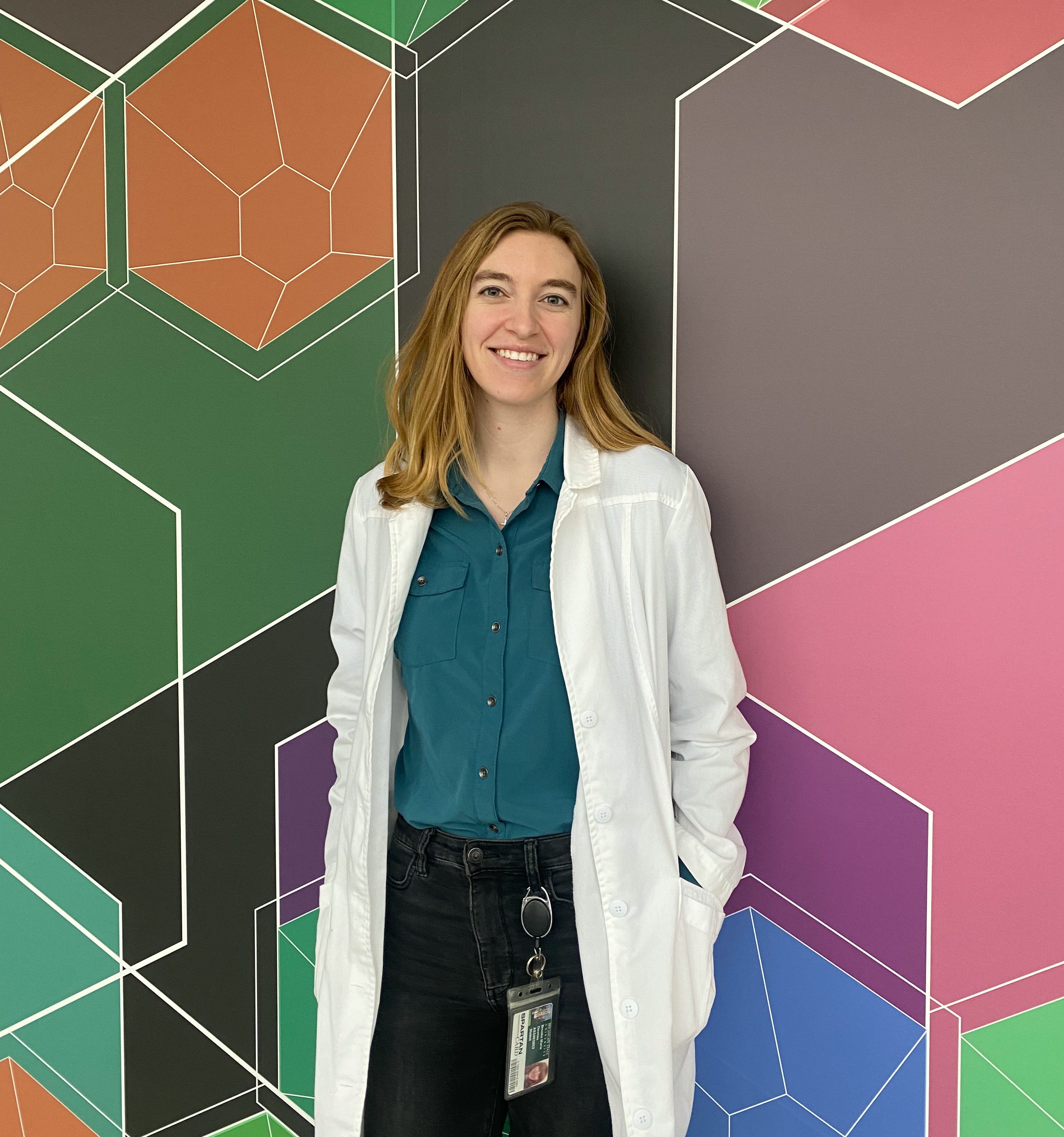Projects
Norman Chamusah
 Research
Research
Norman is a PhD student in the Department of Epidemiology and Biostatistics at Michigan State University. Norman's current research work seeks to understand the relationship between placental histopathology and perinatal outcomes. An abundant body of evidence has revealed that the intrauterine environment has profound effects on fetal development and health across life course, for example birth weight, neurodevelopment and obesity. Even though the placenta is available from every delivery, few are routinely evaluated. As a result, we lack sufficient information on the mechanism by which placental health relates to birth outcomes, child development and adult health. He is further interested in applying machine learning methods to placental research and perinatal health.
Outreach Project
Norman fundraises and volunteers for Nyaka, an organization based in Lansing but looking after AIDs orphans in Uganda. In the past he has run the 2020 and 2021 New York Marathon to raise donations to support this impactful organization. Funds donated not only increased Nyaka's ability to provide tuitions, shoes and uniforms for its 800 students, but also help fund community library, health clinic, and robotics and chemistry labs. Additionally, 20,000 grannies who have taken in 80,000 orphans and vulnerable children have been provided with micro loans, new homes, clean water and latrines. Nyaka Global
Kaylie Chiles
 Research
Research
Kaylie is a DO-PhD student in the Cell and Molecular Biology Program. Her research in the Arora lab focuses on determining the mechanism of T-box transcription factors Tbx4 and Tbx5 in lung mesenchymal progenitor cell fate specification in murine embryonic development. In humans, TBX4 has many functions in the development of diverse tissues and stem cells. TBX4 mutations are known to cause developmental lung disease and neonatal pulmonary arterial hypertension. In mice, the role of Tbx4 in airway branching morphogenesis has been well-characterized, but the current body of evidence suggests a possible synergistic relationship between Tbx4 and Tbx5 that is not fully understood. Kaylie is using a mouse model to recapitulate lung phenotypes seen in human TBX4 patients and strives to understand the fundamental biology of these genes to pave the way towards a cure for developmental lung disease. Additionally, as a gene that is essential in umbilicus development and hence placentation and the maternal-fetal interface, a more thorough knowledge of TBX4 mechanisms of actions in the lung model will provide insights into early developmental mechanisms.
Outreach Project
Kaylie's outreach efforts aim to prepare high school and undergraduate students for medical school and/or physician scientist training programs. She has led a microbiology/microscopy workshop for OsteoCHAMPS high school students, will lead a multiple mini-interview (MMI) workshop for MSU's pre-medical fraternity Delta Epsilon Mu, and is a mentor to two undergraduates in her lab and one first-year DO-PhD student.
Harini Raghu Kumar
 Research
Research
Harini is a Ph.D. candidate in the Genetics and Genome Sciences Program whose research focuses on the mechanisms that drive uterine structural changes required for successful embryo implantation. Using 3D imaging techniques, she investigates how pre-implantation epithelial folding and implantation chamber formation in the mouse uterus impact early pregnancy. Her work advances our fundamental understanding of these early reproductive events and has important implications for addressing implantation failures and improving reproductive health outcomes.
Outreach Project
Harini is dedicated to science education and nurturing future scientists. She has volunteered at Spartan STEM nights hosted at Bath Elementary School and Mt. Hope Magnet School, and played an organizing role in the 2025 Michigan Alliance for Reproductive Technologies and Sciences (MARTS) conference.
Kelsi Morris
 Research
Research
Kelsi’s research focuses on maternal health and birth outcomes. Pregnancy is a time of increased energy needs, as well as a time of differences in hormonal balances in the body. Various diet and lifestyle factors may impact a woman’s health during pregnancy, and it is important to study how these factors may be associated with the health of the mother and her baby. Kelsi has so far worked on projects that look at diet during pregnancy and gestational weight gain, as well as projects that focus on pesticide exposure and various metabolic and inflammatory blood markers in pregnant women.
Outreach Project
Kelsi plans to volunteer at Michigan State University’s Graduate Women in Science for Girls Math and Science Day. This day is centered around working with middle school girls and giving them an opportunity to participate in different science and math-based activities that are led by students at MSU.
Hilary Skalski
 Research
Research
Hilary’s ongoing doctoral research is focused on how obesity affects the endometrial microenvironment and endometrial function in the presence of somatic Pten mutations. Obesity is a rising epidemic, with 50% of women predicted to be obese by 2030. When examining obesity’s impact on female reproductive organs, women with obesity are twice as likely to have irregular and/or lengthened menstrual cycles. Obesity is also a risk factor for endometrial hyperplasia (EH), which is characterized by the benign overgrowth of the endometrial epithelium. Endometrial epithelial PTEN mutations are commonly observed in EH. Neither obesity nor Pten mutation alone are sufficient to drive disease progression. With the use of genetically-engineered and obesity-induced mice, she will expand the genomic understanding and phenotypic characterization of obesity and Pten mutation-driven EH with histology, novel 10x Genomics Flex single cell RNA-sequencing, and flow cytometry. Identified pathological mechanisms can then be utilized to prevent EH progression through the potential development of disease-prediction biomarkers or treatment targets in high-risk women with EH. This research will advance our understanding of women’s reproductive health and fertility.
Recent Publications
- Skalski HJ, Arendt A, Harkins SK, MacLachlan M, Corbett CJM, Goy RW, Kapoor A, Hostetter G, and Chandler RL (2024) Key considerations for studying the effects of high-fat diet (HFD) on the nulligravid mouse endometrium. J Endocr Soc. 8(7):bvae104.
- Wilson MR, Skalski H, Reske JJ, Wegener M, Adams M, Hostetter G, Hoffmann HM, Bernard JJ, Bae-Jump VL, Teixeira JM, Chandler RL (2022) Obesity alters the mouse endometrial transcriptome in a cell context-dependent manner. Reprod Biol Endocrinol. 20(1):163.
- Reske JJ, Wilson MR, Holladay J, Siwicki RA, Skalski H, Harkins S, Adams M, Risinger JI, Hostetter G, Lin K, and Chandler RL (2021) Co-existing TP53 and ARID1A mutations promote aggressive endometrial tumorigenesis. PLoS Genet17(12):e1009986.
Outreach Project
Hilary volunteered at the Region 12 Michigan Science Olympiad hosted by the Regional Science and Math Center at Grand Valley State University. Science Olympiad is an annual school-based team competition meant to encourage middle school and high school students into STEM fields. There are a total of 23 events, which range in topics from anatomy, chemistry, forestry, meteorology, and engineering.
Brooke Van Loh
 Research
Research
Brooke’s research focuses on the role of vasoactive intestinal peptide expressing neurons in female reproductive health in response to mistimed light. Light pollution is a growing problem, impacting every developed country, and has negative impacts on female reproductive health. Brooke’s work examines how vasoactive intestinal peptide neurons - which are involved in both the neurological response to light and the female reproductive system – are affected by exposure to mistimed light and how they, in turn, alter female reproductive health.
Outreach Project
Brooke’s outreach project focuses on making science accessible and interesting to elementary school students and their families through participation at elementary school science nights.
Lisa Zou
 Research
Research
Lisa's research focuses on the mechanisms of early pregnancy. Lisa is interested in the advancement of the application engineering principles and designs in medicine to develop methods to improve healthcare. In her current research projects, Lisa is developing methods for modeling the uterine environment within 3D scaffolding micro-environments to study early pregnancy embryo movement before implantation, as well as studying the nature of uterine contractions at this stage.
Outreach Project
Lisa plans to volunteer at Michigan State University (MSU) Science Festival 2024. The MSU Science festival celebrates how science, technology, engineering, art, and mathematics (STEAM) touch everyday lives and shape the future. This event is about broadening public access to educational opportunities and promoting science literacy in our communities.



 Print
Print Email
Email